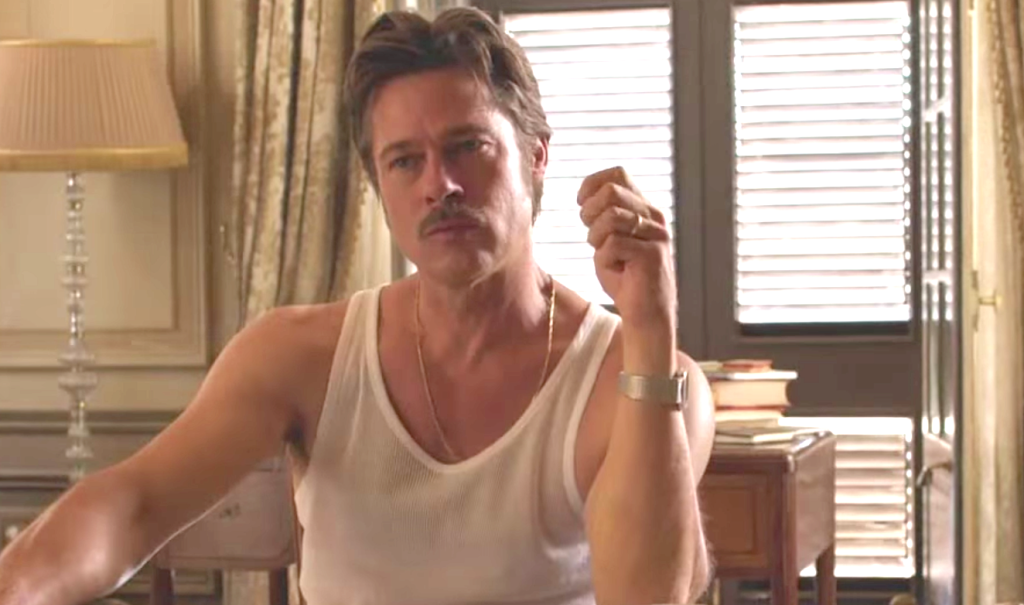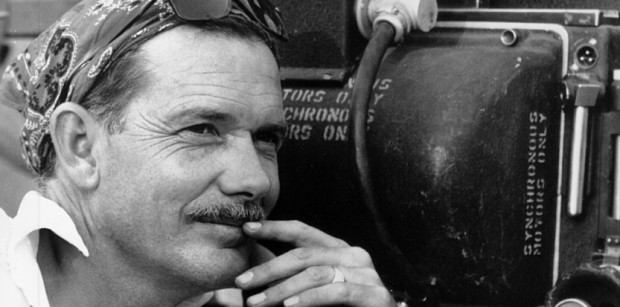Genre: True Story
Premise: (from Black List) After losing his luster and respect in Hollywood, famed director Sam Peckinpah hopes to direct his next great film with financial backing from Colombian drug lords and brings along a novice screenwriter to write the film in Colombia.
About: “If They Move Kill’em” landed on the 2012 Black List and was Kel Symons breakthrough screenplay. For those who don’t know, the subject of the script, Sam Peckinpah, was one of the best directors of the late 60s and early 70s, responsible for such classics as The Wild Bunch, The Getaway, and Straw Dogs. He was also a notorious addict who burned the candle at both ends AND in the middle.
Writer: Kel Symons
Details: 96 pages – 1st draft
Sam Peckinpah was the anti-establishment writer-director of his time. He hated… well, pretty much everything besides making movies. And to be involved in one of his films was like riding on a rollercoaster built entirely out of razor blades. While it may not have been enjoyable to be a part of the Sam Peckinpah legacy, you sure as hell came away with a lot of stories.
“If They Move Kill’em” is constructed around this conceit. It’s 1978, which was long after the apex of Peckinpah’s career. The Wild Bunch, his most famous film, was a decade old at this point. And while previous studio regimes had a “Don’t Ask, Don’t Tell” approach to substance abuse, movies were becoming big business, and that meant more scrutiny at every level. Heck, Star Wars had just come out a year earlier. Everyone was starting to see what movies could become. Which made Peckinpah a relic of the old guard.
This is perhaps why Peckinpah decided to make his next movie in Columbia using 100% drug money. Peckinpah’s drug-fueled logic was this: Sure, I might be using blood-soaked hundred dollar bills to make entertainment, but at least I don’t have to answer to a bunch of self-serving liars in suits hell-bent on destroying my vision. The Columbians loved his Westerns. They’d let him do whatever he wanted.
There was only one problem. Peckinpah wasn’t making a Western. He was a making a commentary about the Columbian drug-trade, something he didn’t necessarily mention when all of the “financing” was being put in place. Therefore, when he flies down to Columbia to finalize the details, his drug-lord handlers are none too thrilled about this surprising turn of events.
Meanwhile, Peckinpah has hired a neophyte screenwriter, Charlie Stetler, to write his film. Charlie, a straight arrow with an 8 months pregnant wife, isn’t prepared for the world he’s dropped into. This is a man whose most exciting daily event is when the coffee machine breaks at the community college he teaches at. Now he’s walking through metal detectors with suitcases full of half-a-million dollars.
Peckinpah uses a steady diet of gin and tonics, whiskey, and Columbian coke to fuel the prep for his film. But when the Madero brothers, his financiers, learn that Peckinpah isn’t giving them the next Wild Bunch, they go apeshit and consider killing off the prick and his sidecar screenwriting act.
What scares the shit out of Charlie is that Peckinpah isn’t worried about this one bit! He’d rather challenge random drug lords to arm-wrestling matches than figure out a way to escape back to America before they get a bullet to the head. That’s when Charlie considers the unthinkable. Maybe this was all part of the plan. Maybe Peckinpah came down here to end his life in one final blaze of glory. And poor Charlie is just collateral damage.
Boy, this started out great. Peckinpah is one hell of a character. He is a feeding frenzy of drugs, alcohol, and women. He is a raging lunatic, a hurricane looking to sweep anything within a one mile radius into his circle of pain and loathing. And for that reason, whenever we’re highlighting Sam, the script works.
Where “If They Move Kill’em” runs into problems is in its plotting, as it never seems like Symons has much of a plan here. It’s almost like he’s hoping once we land in Columbia, the movie will write itself. In his defense, it would seem that way. He’s got this great character in this volatile setting. Why wouldn’t the script write itself?
Welcome to screenwriting. Where IT’S NEVER FUCKING EASY. Even when you think it’s going to be easy, it’s not easy. I can’t tell you how many times I’ve thought to myself, “Well, at least I have that one scene coming up. That scene is going to be amazing.” Then I get there and realize it’s the hardest scene in the script to write.
What “Shoot’em” reminded me of is that you still have to outline. You still have to plot. You still have to structure. Because if you don’t, your story just sort of drifts. It may drift into some interesting places. But it’s still drifting. The reason you plot is so your story can build – so that it moves towards an identifiable climax, something we can look forward to.
That’s the problem here. Where are we moving towards? Are we moving towards an agreement to make the movie? Is that the main character’s goal? We’re certainly not moving towards the completion of production, since 3/4 of the way into the script, we’re nowhere near shooting a frame of film. So the audience is asking, “What’s the end game here?”
How this hurts you is simple. You don’t know where you’re going so you just start writing shit down hoping for the best. About 70 pages in, for example, Sam and Charlie are sent off to a cocaine processing plant while the Madero brothers figure out what to do with them. And then we just watch our characters hang out.
You’re 3/4 of the way into your movie. Your characters shouldn’t just be “hanging out.” With 30 pages left in your script, we need to be building towards something. Especially when you’ve made a promise to the audience by chronicling this insane main character.
A great example of doing this the right way is The Wolf of Wall Street. That film has a clear structure. We see the rise of Jordan Belforte. Then we see the fall. We always know where we are. And, more importantly, we’re always MOVING. We’re never just sitting around waiting for things to happen. That’s the death knell of any screenplay. If your characters are waiting for anything for longer than a scene? You need to rewrite that section of the script.
Yet I wouldn’t give up on this project. Peckinpah is a person who’s worthy of being written about. He’s built for biopicing. I could see every actor between 50-60 dying to play him. Bryan Cranston would probably be the way to go. Maybe even Pitt. But this script is a reminder that a character isn’t enough. It’s a superb starting place. But you still need a plot with a plan. And I never saw that here.
[ ] What the hell did I just read?
[x] wasn’t for me
[ ] worth the read
[ ] impressive
[ ] genius
What I learned: The “innocent” thrown into the lion’s den is a great trope. Shonda Rhimes has built an entire TV empire around this setup. Remember that you’re always looking for conflict and contrast in storytelling. If someone’s in an environment they’re familiar with and/or comfortable in, that’s boring. But throw them into a world that they despise or are scared of, now you’ve got a movie. Peckinpah going to Columbia wouldn’t have been enough. He’s just as crazy as his hosts. But Charlie, the sweet and innocent screenwriter with a heart of gold being thrown into Columbia? Now you’ve got a movie. To test this, write a scene where a scheming drug addict walks into a strip club. I guarantee it will suck. Now write a scene where a bible salesman is dragged into a strip club. Watch the scene come alive.



